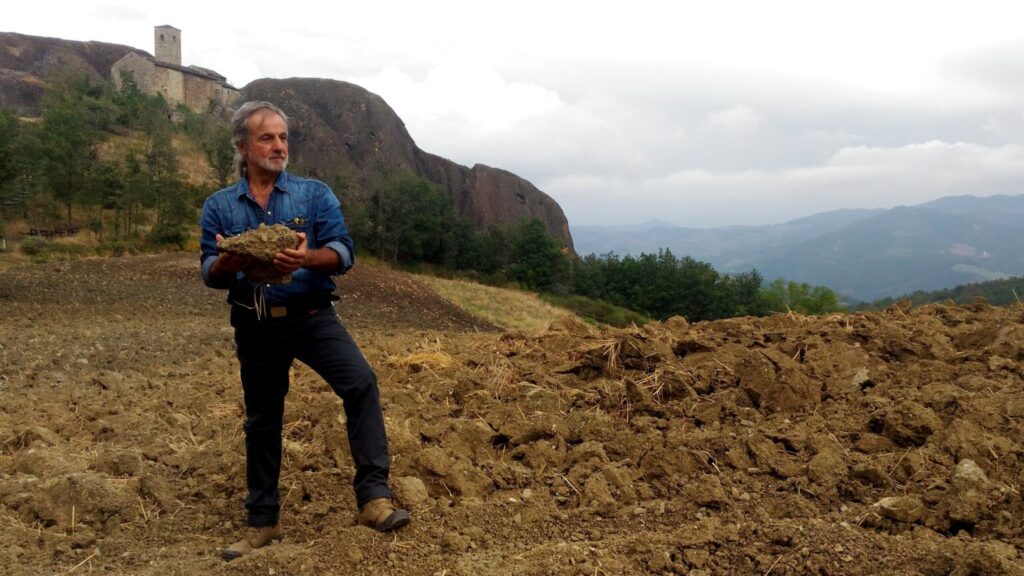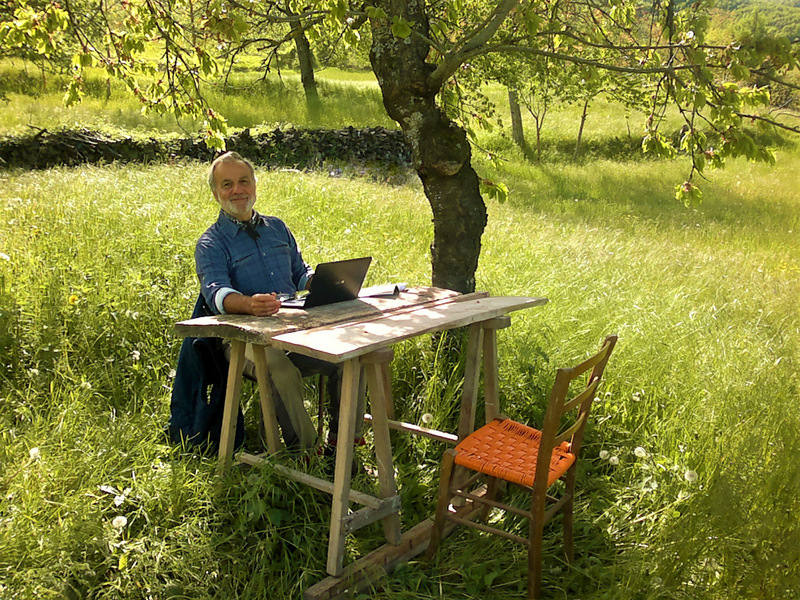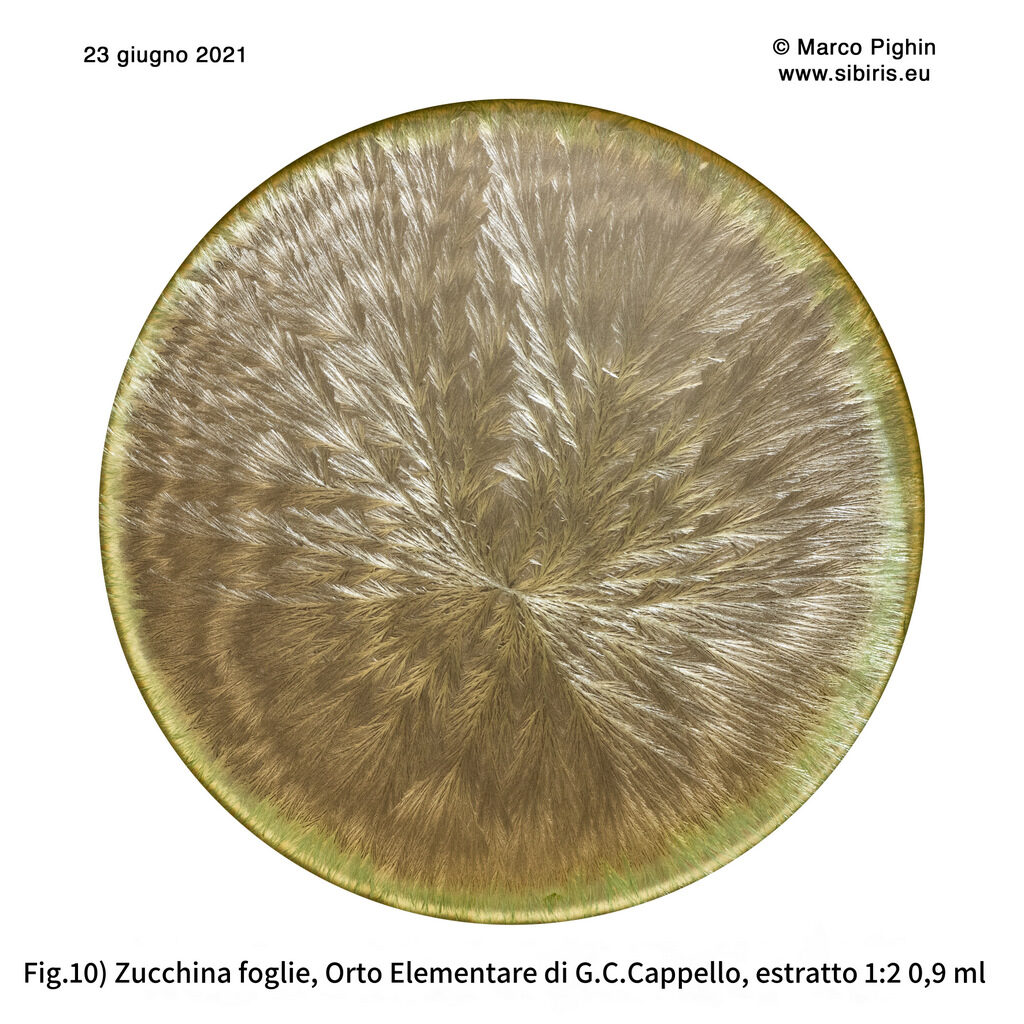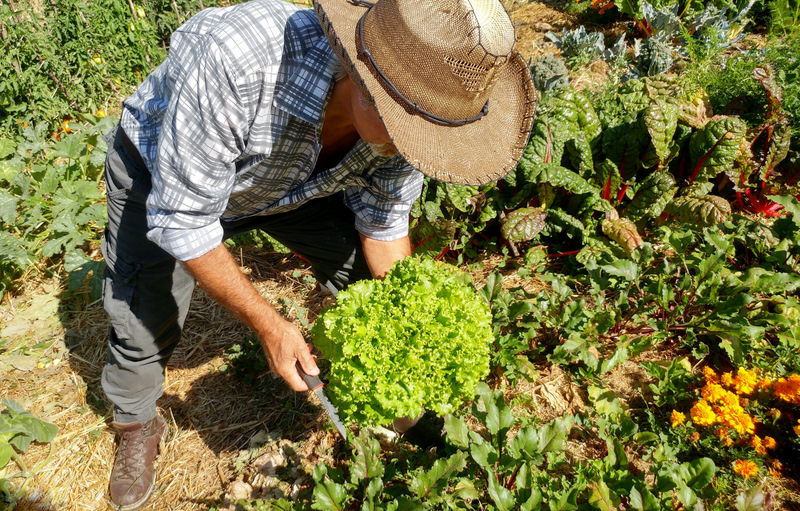Elementary Farming is a new, simple, and revolutionary agricultural practice conceived and disseminated by Agr. Gian Carlo Cappello after a lifetime of experimentation in the field and on himself. Elementary Farming allows for the production of healthy, safe, and abundant crops without effort, without water waste, and without environmental pollution, while fully respecting the natural growing conditions of plants.
It is not a reform of agricultural practices but a revolution that closes the chapter of agronomic science, deeming soil analysis (commonly considered the basis for progress) entirely useless and opening up to our natural intuition. Elementary farming shifts the focus of cultivation from the materialism of technology to the instinctive and animal capacity for problem-solving with extemporaneity inherent in our DNA.
The central theme of Elementary Farming is the recognition of the central role of humus not only in cultivation but in the cycle of Life. The soil is always kept mulched with meadow hay and is never tilled, weeded, fertilized, or amended. No pesticides are used, nor any animal or animal-derived products. Water consumption is minimal, and handcrafted artisanal tools are used. The soil profile is not altered through raised beds, bedforming, or other shaping techniques, and no crop rotations, cover crops, companion planting, composting, space planning, or work schedules are practiced. The choice of ancient or modern vegetable varieties is free, without dogmatic positions, while favoring self-produced seeds. The simplification of practices should not be confused with ease or neglect in the field. With a saturation of biodiversity le piante crescono forti e danno frutti nutrienti, raccolti sicuri and abundant essential conditions for realizing social and economic change, to return to living not "in"countryside, but "of" the countryside.
Elementary Farming, aimed at a new society, is intended for those who want to achieve food self-sufficiency by emancipating themselves from dependence on the market and industry. For this reason, it is incompatible with any business activity, even those considered "ethical," "sustainable," or "green."
The Elementary Farming is not just an agricultural practice, it is above all an attitude of the heart and mind promoting inner growth, the development of intuition and perception, innate wisdom, creativity, foresight, common sense, and self-discipline for both cultivators and those who consume its products because strong and healthy nourishment is an indispensable condition for attaining one's freedom.
Agriculture for social change.
Humanity has been reduced to slavery by the capitalist system, starting with the gradual disintegration of communities and neighborhood life, resulting in the loss of our ability to produce goods and services for ourselves, both essential and indulgent.
We have been reduced to consumers of foods that weaken us, of objects in which we do not recognize ourselves within a context of frozen human relationships. Through this political operation, Power has taken away our energy, dignity, and freedom.
Elementary Farming, supported by craftsmanship, can be realized with little money to acquire the few simple tools necessary, allowing the construction of communities and individual lives emancipated from the implicit exploitation inherent in the survival of the capitalist system.
The word "capitalism" finds its etymology in "caput pecoris" (from Latin: pecoris = livestock), where the flock or herd is us, exploited in life and sent to die in war, traffic, workplaces, and cities plagued by smoke and depression—all for the gain of the few Masters of the Planet. But now, many egregious lords and ladies (from Latin: ex-grege = outside the flock) are jumping over the fences.
A spiritual attitude to cultivate according to Nature.
The Elementary Garden promotes inner growth. I do not believe that hoeing, digging, and killing everything that moves in the garden can promote it; on the contrary, without involving the soul, one ends up hoeing and digging the earth. The processes of Nature are not dictated by the parameters of agricultural heritage; we cannot know them and must simply let ourselves go without fear of becoming a part of them. In the Elementary Garden, we learn to intuitively perceive from the surrounding environment when it is time to do this or that; this happens because the garden is not saddened by soil cultivation and other biocidal agricultural practices.
Only by respecting natural balances Only by respecting natural balances can we move back to being part of productive Nature. Otherwise, we align ourselves among the parasites, the worst among them, parasites of ourselves as well. We can rediscover the original perfection only by bringing our creativity to light, the spontaneous ability to live in Nature. In my opinion, the place more than any other suitable for creating these conditions of inner growth is the Elementary Garden, but the opposite is also true: there is no Elementary Farming without personal growth.
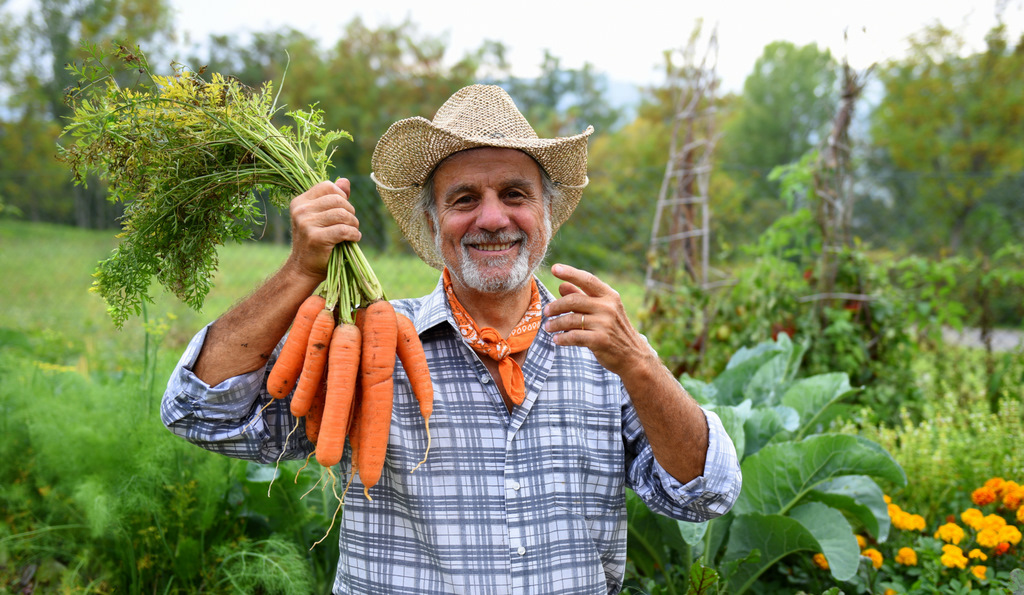
Text and photos by Gian Carlo Cappello and Mara Lilith Orlandi. © All rights reserved. Reproduction prohibited.

